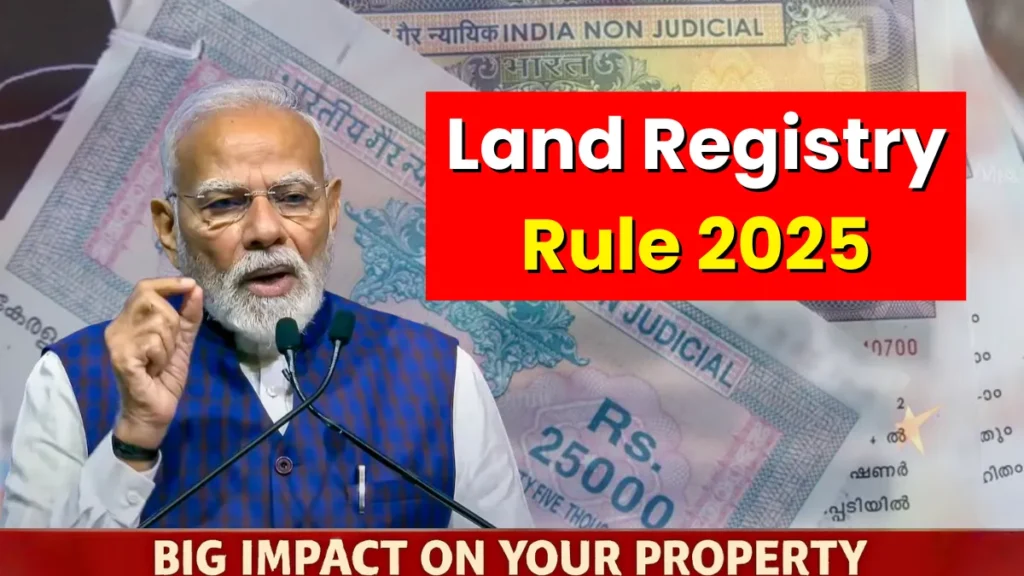New Rule for Land Registry in 2025- The Indian government has brought a big change in the land registration system for 2025, making the entire process fully online.
This decision aims to make property registration faster, easier, and more transparent for common citizens. Now, people won’t have to stand in long queues at registry offices or deal with middlemen.
With the new digital system, the land registry process can be completed from the comfort of your home, using just a smartphone or computer.

New Rule for Land Registry in 2025
This reform is a part of the Digital India mission, which focuses on bringing government services online for citizens’ convenience. Earlier, the process of registering land used to take several days or even weeks.
People had to visit offices multiple times for verification, approvals, and document submissions.
But under the new rule of 2025, all these steps have been shifted online. From uploading property documents to verification and final approval, everything will happen digitally.
Officials say that the main goal of this initiative is to save people’s time and stop corruption at the local level. With every record being digitally stored, it will also reduce the chances of fraud and fake ownership claims, which were quite common in the past.
How the Online Land Registry Will Work
Under the new system, citizens can visit the official state land registration portal and create their account. Once logged in, they can upload the property documents, Aadhaar card, PAN card, and other necessary proofs.
The system will automatically verify the details using linked databases. After successful verification, the applicant will receive a digital appointment for e-signing the documents.
The most impressive part is that approval and ownership transfer will now take place within 24 to 48 hours, depending on the property type and area.
A digital copy of the ownership certificate will be sent to the applicant’s registered email and mobile number. No more running from one department to another for signatures or stamps. Everything will happen with just a few clicks.
Transparency and Safety for Citizens
In the old method, people often faced issues like double registration, missing papers, or delayed approvals.
The new online process solves all these problems by using blockchain-based record management. This means every transaction will be securely recorded, and no one can tamper with the details.
The government has also ensured that the online portal is user-friendly and available in regional languages.
So whether you are from a village in Uttar Pradesh or a city like Bengaluru, you can easily register your land without needing any expert help. Local cyber seva centers will also assist citizens who are not comfortable with digital processes.
Benefits for Common People
For a normal Indian citizen, this new rule is nothing less than a relief. It saves both money and time. Earlier, many people used to depend on agents or brokers to get their work done.
Now, with everything online, there’s no need to pay extra fees or wait for days. Farmers, property buyers, and small landowners will especially benefit from this change, as they can manage their land records themselves.
Banks will also get instant access to verified property documents, making loan approvals faster. Builders and real estate developers believe this digital move will boost transparency in the property market and attract more investments.
The Future of Land Registry in India
The 2025 online land registry reform shows that India is truly stepping into a new era of governance. With the combination of technology, transparency, and trust, citizens will experience smoother services and fairer transactions.
In the coming years, more features like online property valuation, instant tax calculations, and live tracking of registry applications are also expected to be added.
This step by the government is a clear example of how digital transformation can make a real difference in people’s lives.
The new rule for land registry in 2025 has not only made the process faster but has also restored people’s faith in a system that once felt slow and complicated.
